Golden Coach, The (1952)
“We’re here only for this treacherous gold; no one dreams of anything else.”
|
Synopsis: |
|
Genres, Themes, Actors, and Directors:
Review: However, it’s also an opportunity for Renoir to once again skewer the aristocracy: … while having fun with color, set pieces, life-versus-art, and romantic entanglements; as noted by Andrew Sarris in his essay for Criterion, it “can best be appreciated as an illustrious filmmaker’s elegant tribute to the theater.” It’s not must-see for all film fanatics, though Renoir or Magnani fans will certainly want to check it out. Redeeming Qualities and Moments: Must See? (Listed in 1001 Movies You Must See Before You Die) Links: |
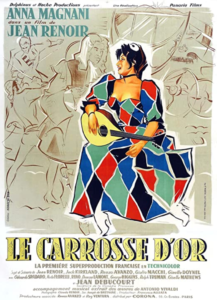
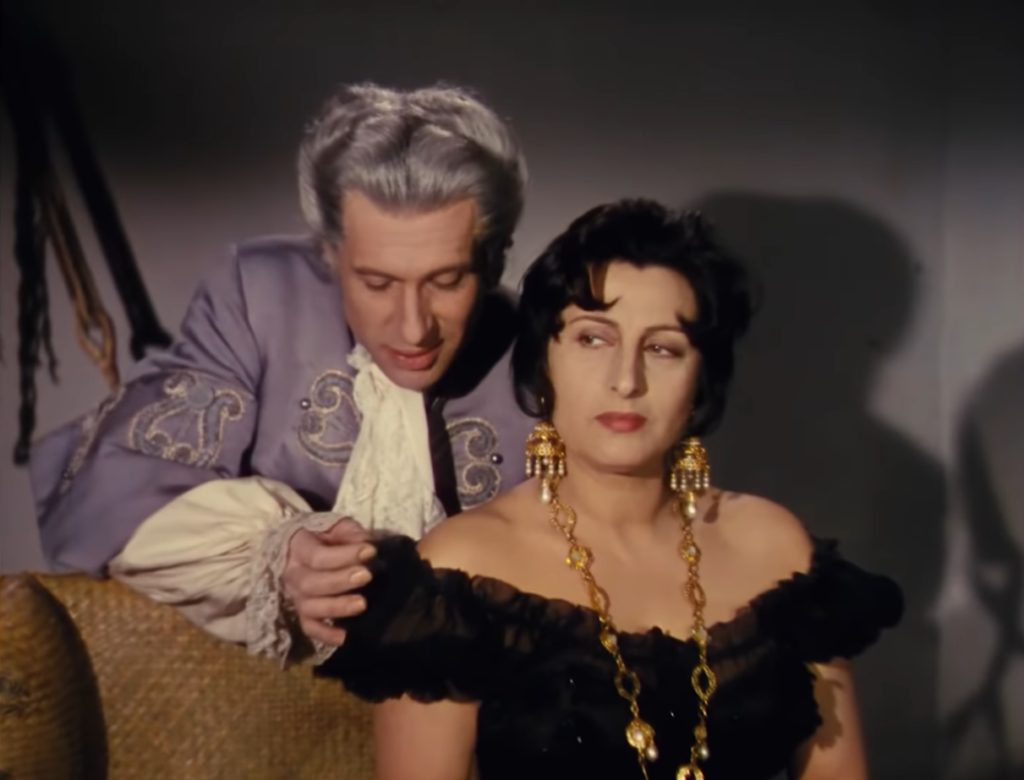
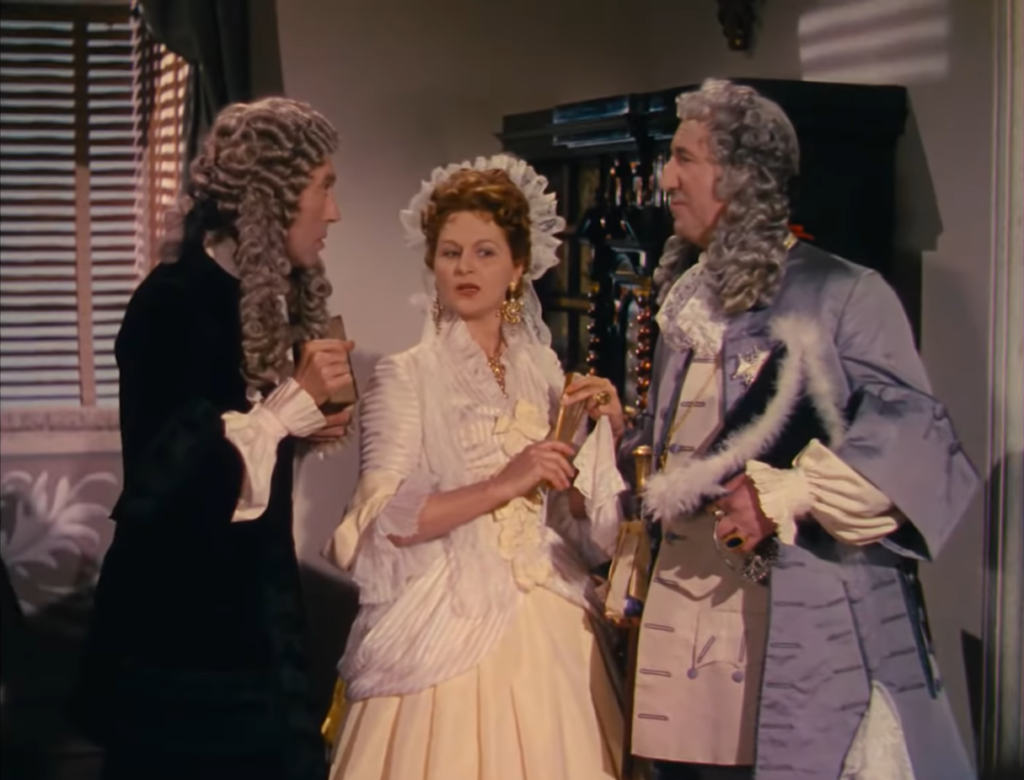
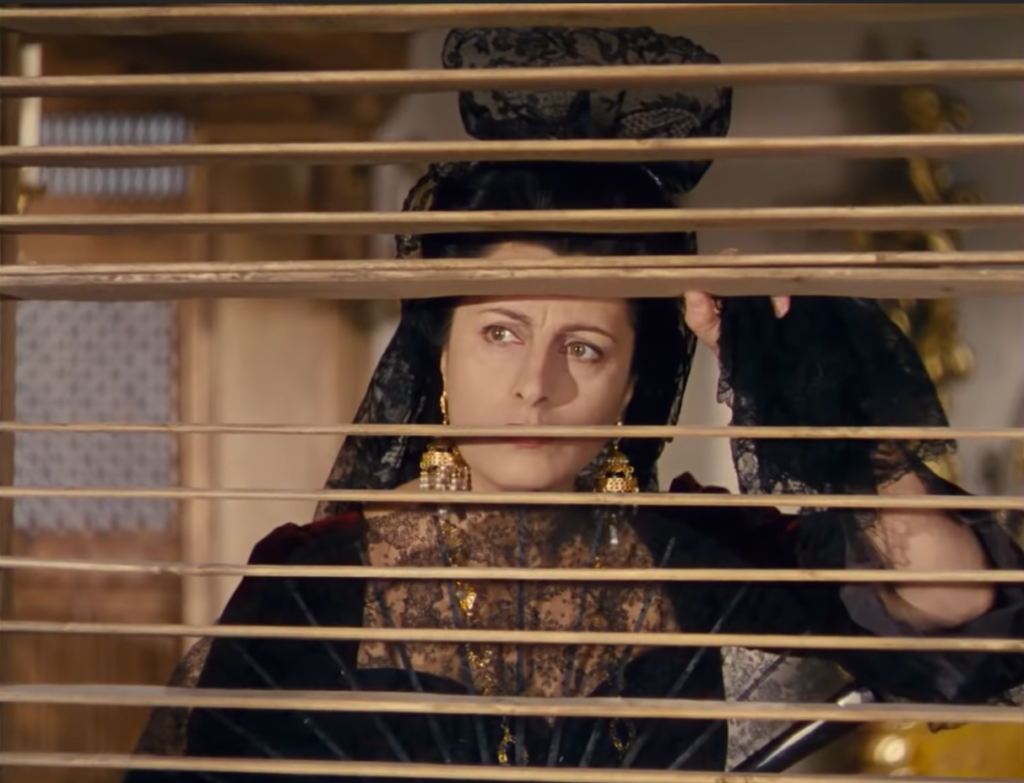
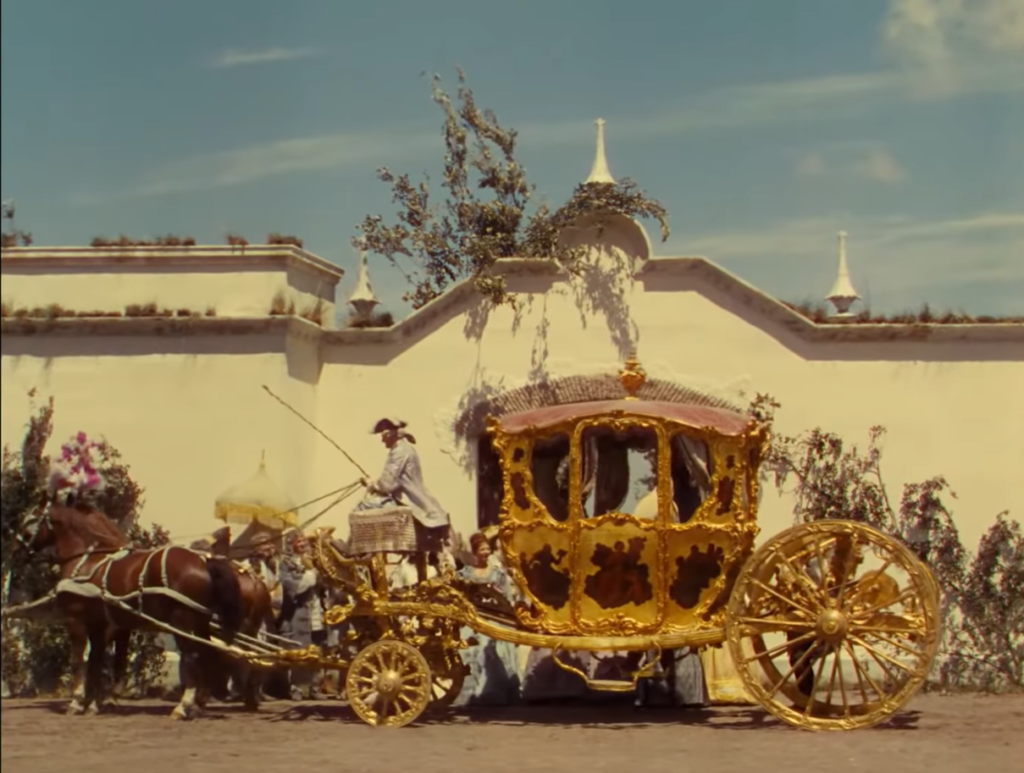
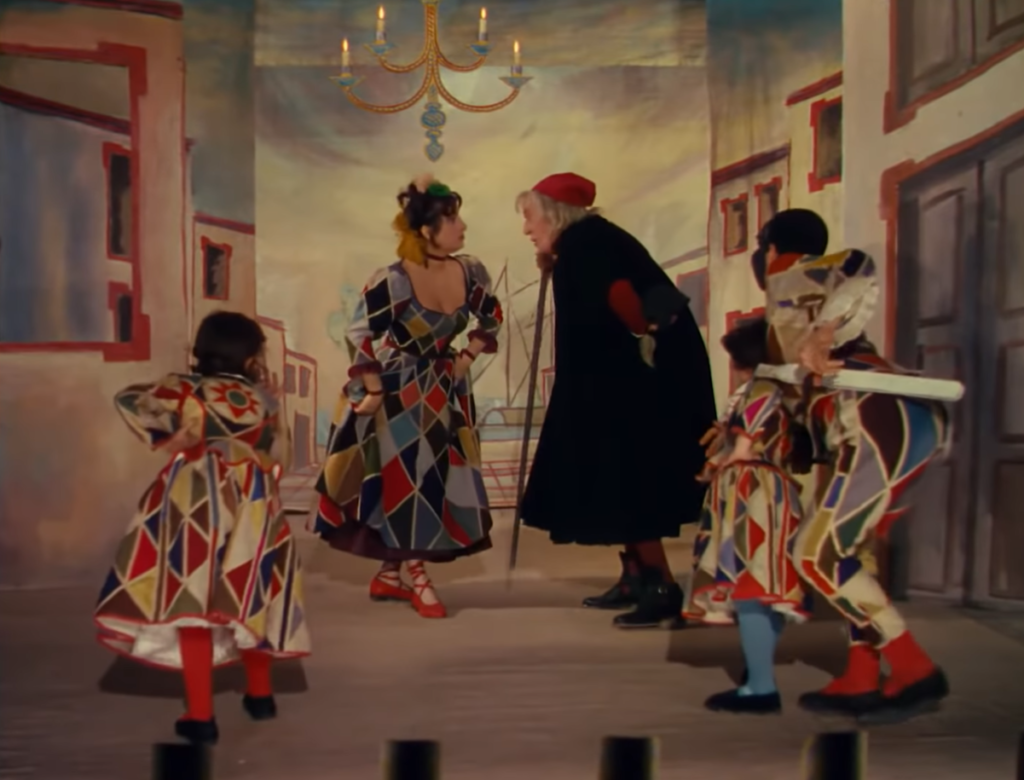
One thought on “Golden Coach, The (1952)”
First viewing (1/26/21). Not must-see.
Lovely to look at but not particularly delightful to know. If nothing else, Renoir concocted something that is consistently visually pleasing but it’s not just the production design along with the color schemes; his direction is also rather nimble.
The story leaves much to be desired. It’s stodgy. An homage to a particular style would be one thing – but the dialogue is stilted (esp. in the first half).
As well, Magnani (alas) often appears miscast; her performance is uneven and she only shines sporadically. Clearly she’s not comfortable with the English language (she’s allowed Italian on occasion; it’s then that she’s more alive) – and that prevents her from discovering necessary nuance.
The three supporting men fare better, as does Gisella Mathews as the Marquise (one would like to see more of her since she does a lot with a too-small role).
As the second half begins, the film gets a lift in a welcome scene between the Viceroy and the nobility – where they’re ultimately discussing the difference between taxes and “voluntary contributions” to the war effort (fortunately it’s a long sequence and it’s a lot of fun).
But the film then begins to falter as it falls into the farcical climax it’s been building to: the showdown between the three men as they openly compete for Magnani (who gives viewers a lot of flip-flopping in her emotions).
The ending isn’t all that satisfying.